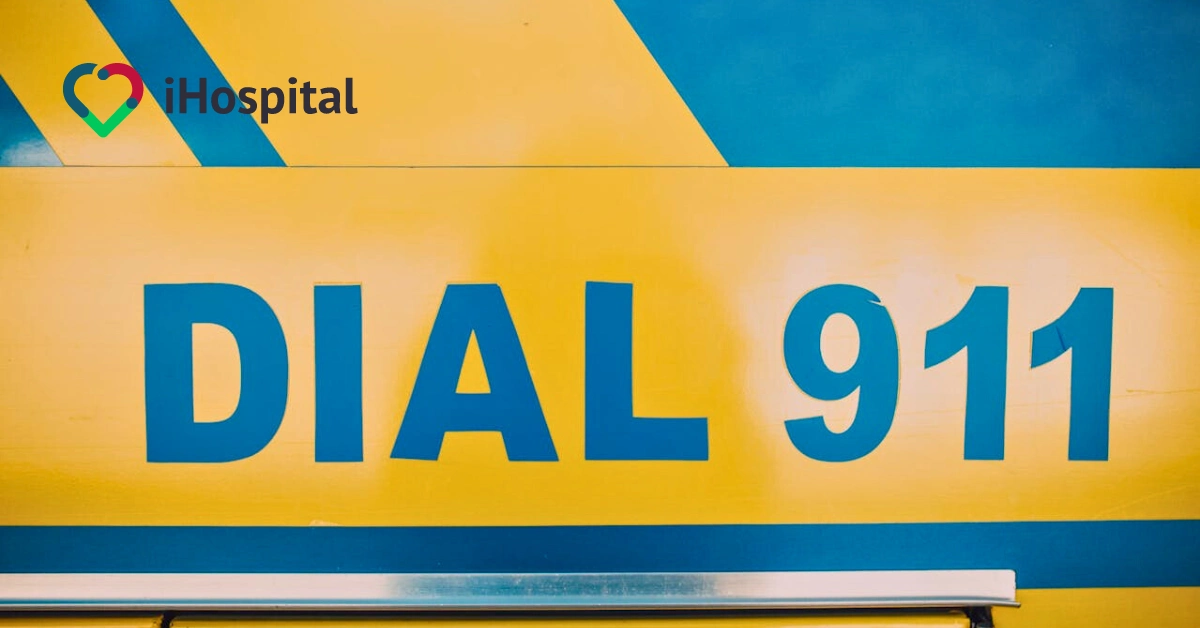
Dealing with emergencies: How to find the fastest medical care near you?
2024-06-03
<p>Emergencies don't wait for respite; they require gumption and quick action, as the passage of time becomes our worst enemy. In these critical moments, finding the nearest medical care is not a luxury, but a race against time, where every decision carries the weight of potential consequences.</p><p>Whether it's a sudden illness, injury, or other medical emergency, explore practical steps to help you quickly and efficiently locate the nearest medical care when every moment counts.</p><h2>How do you find the fastest medical care near you in an emergency?</h2><p>Here are some steps to help you find the nearest medical care quickly:</p><h3>1. Assess the situation and call 911</h3><p>Quickly assess the severity of the situation, and if you find it to be life-threatening or requiring immediate medical attention, call your country's emergency services without delay (911 in Jordan), or ask someone else to do so, and follow the medical professionals' instructions carefully until help arrives. Be prepared to give them clear and concise information about the nature of the emergency, any first aid provided, and relevant medical history if known. In the meantime, remain calm and reassure the casualty.</p><h3>2. Use the internet to search for a nearby medical facility</h3><p>Use search engines to find nearby medical facilities, such as urgent care centers, hospitals, or clinics. Include keywords such as “hospital near me” or “emergency near me” to narrow your search. Make sure the facility you choose is open; some facilities have limited hours.</p><p>Hospitals have emergency departments equipped to handle a wide range of medical emergencies, including severe ones, while urgent care clinics often provide medical services for minor injuries and illnesses. Be aware of your insurance coverage and whether certain facilities are in-network or out-of-network.</p><h3>3. Consider telemedicine</h3><p>In some minor cases or for initial evaluation, telemedicine services can provide immediate medical advice or remote assistance.</p><h3>4. Seek help from people nearby</h3><p>If you are unable to seek medical care on your own, or if you are in an unfamiliar area, ask someone nearby for help; they may be able to help you find the nearest medical facility, call emergency services, or recommend a nearby medical facility.</p><h3>5. Be prepared for emergencies</h3><p>Keep a list of nearby medical facilities and emergency contact numbers in your phone, wallet, or a prominent and recognizable place at home for easy access in an emergency. Store important medical information, such as allergies and medications for family members as well. Additionally, consider taking a first aid course to learn basic medical skills. Make sure children know how to call for help.</p><p>Remember that in medical emergencies, prioritizing speed is critical, but it's also important to make sure you get the right level of care.</p><h2>Tips for dealing with emergencies</h2><p>Dealing with a medical emergency can be stressful and confusing, but being prepared and knowing what to do can make all the difference.<br><strong>Here are some tips for dealing with a medical emergency:</strong></p><ol><li><strong>Stay calm:</strong> It's important to remain as calm as possible; panic can hinder your ability to think clearly and take appropriate action.</li><li><strong>Assess the situation:</strong> As mentioned, quickly assess the severity of the situation, determine if immediate medical attention is needed, call 911 if so, and follow their instructions precisely.</li><li><strong>Provide first aid:</strong> If you have been trained in first aid, provide the necessary aid while waiting for the medical team to arrive. This may include: CPR, controlling bleeding, or stabilizing injuries and fractures. Just make sure the environment is safe (in the case of shocks, for example, make sure the power is turned off first!)</li><li><strong>Keep emergency numbers handy:</strong> Make sure important medical contacts are stored in your phone or on a piece of paper in a known location at home. Also, keep a first aid kit in a safe place and always make sure the medications are up to date.</li><li><strong>Reassure the injured person:</strong> Stay with the injured person until medical help arrives, and try to reassure them.</li></ol><p>Remember that every situation is different, and it is important to prioritize the safety of the injured person, do not hesitate to ask for help if you are not sure what to do, and always follow the guidance of medical professionals.</p><p><strong>With iHospital, you get exceptional healthcare that meets your individual needs and puts your health first, with an extensive network of experienced physicians and flexible appointments to suit your needs. <a href="https://www.ihospitalapp.com/ar/doctor-profile/1154_%D8%A3%D8%B7%D8%A8%D8%A7%D8%A1-%D8%A2%D9%8A-%D9%87%D9%88%D8%B3%D8%A8%D9%8A%D8%AA%D8%A7%D9%84-Specialist-Doctors-Home-Visit">Contact us now</a> and get the care you need.</strong></p><hr><h2>References</h2><ol><li aria-level="1"><a href="https://www.prevention.com/health/a20478106/11-tips-from-the-emergency-room/">11 Secrets ER Insiders Know—And You Should, Too</a>, Prevention</li><li aria-level="1"><a href="https://physicianoneurgentcare.com/blog/how-to-get-fastest-urgent-care">How to Get The Fastest Urgent Care Possible</a>, PhysicianOne Urgent Care</li><li aria-level="1"><a href="https://www.alert-software.com/blog/the-basics-of-handling-a-workplace-emergency">Emergency Alert Steps: How To Handle An Emergency Situation</a>, DeskAlerts</li><li aria-level="1"><a href="https://www.onlinecprcertification.net/blog/7-steps-to-deal-with-emergency-situations/">7 Steps to Deal with Emergency Situations</a>, American Academy of CPR And First Aid</li></ol>